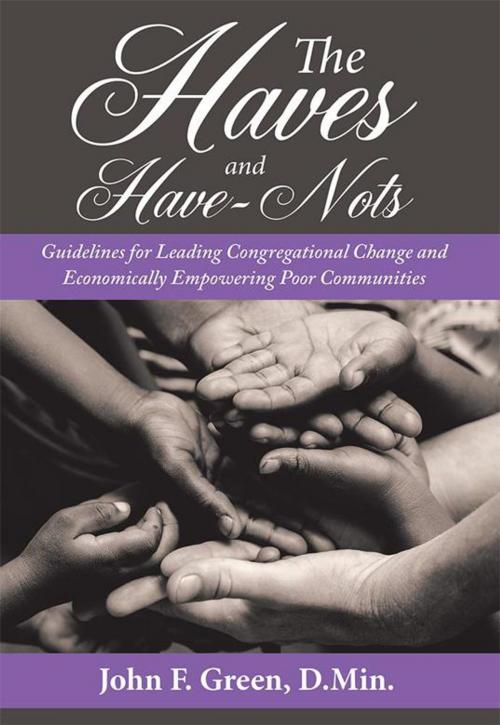The Haves and Have-Nots
Guidelines for Leading Congregational Change and Economically Empowering Poor Communities
Nonfiction, Religion & Spirituality, Christianity, Church, Christian Life| Author: | John F. Green | ISBN: | 9781512779257 |
| Publisher: | WestBow Press | Publication: | April 26, 2017 |
| Imprint: | WestBow Press | Language: | English |
| Author: | John F. Green |
| ISBN: | 9781512779257 |
| Publisher: | WestBow Press |
| Publication: | April 26, 2017 |
| Imprint: | WestBow Press |
| Language: | English |
The significance of Dr. John Greens book entitled The Haves and The Have-nots: Guidelines for Leading Congregational Change and Economically Empowering Poor Communities, rests in his concern about the economically poor communities in which black churches find themselves and thus carryout their ministries. It is an intriguing practical and theological exploration with the major goal of the narrative to present models of ministry grounded in sound biblical theology, and supported by theologians and practitioners familiar with local church outreach strategies and who have chronicled their experiences about churches doing ministry among the economically disadvantaged.
The importance of Dr. Greens book rests in the question of whether or not African American churches will be able to rise above their middle-class status in order to reach out to the poorer communities surrounding their churches. The book presents leadership strategies that will enable pastors as well as the leadership in local churches to begin to engage in congregational change. Presenting leadership strategies for overcoming the status anxiety that hinders outreach of local black churches to the community is the goal of this well-written book.
Edward P. Wimberly, Jarena Lee Professor
Pastoral Care and Counseling
Interdenominational Theological Center
The significance of Dr. John Greens book entitled The Haves and The Have-nots: Guidelines for Leading Congregational Change and Economically Empowering Poor Communities, rests in his concern about the economically poor communities in which black churches find themselves and thus carryout their ministries. It is an intriguing practical and theological exploration with the major goal of the narrative to present models of ministry grounded in sound biblical theology, and supported by theologians and practitioners familiar with local church outreach strategies and who have chronicled their experiences about churches doing ministry among the economically disadvantaged.
The importance of Dr. Greens book rests in the question of whether or not African American churches will be able to rise above their middle-class status in order to reach out to the poorer communities surrounding their churches. The book presents leadership strategies that will enable pastors as well as the leadership in local churches to begin to engage in congregational change. Presenting leadership strategies for overcoming the status anxiety that hinders outreach of local black churches to the community is the goal of this well-written book.
Edward P. Wimberly, Jarena Lee Professor
Pastoral Care and Counseling
Interdenominational Theological Center















